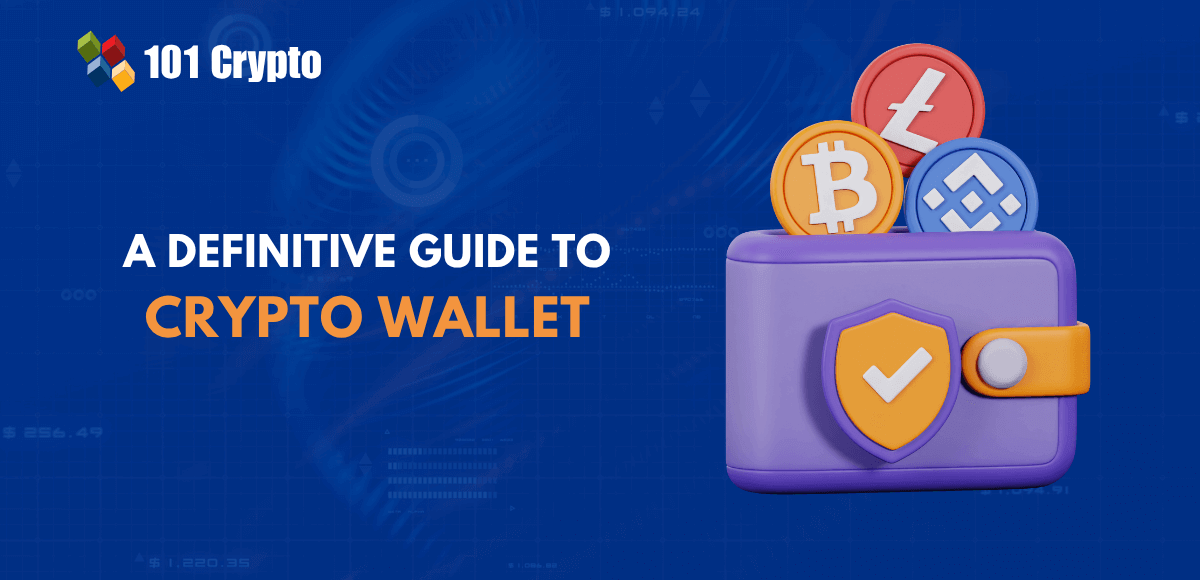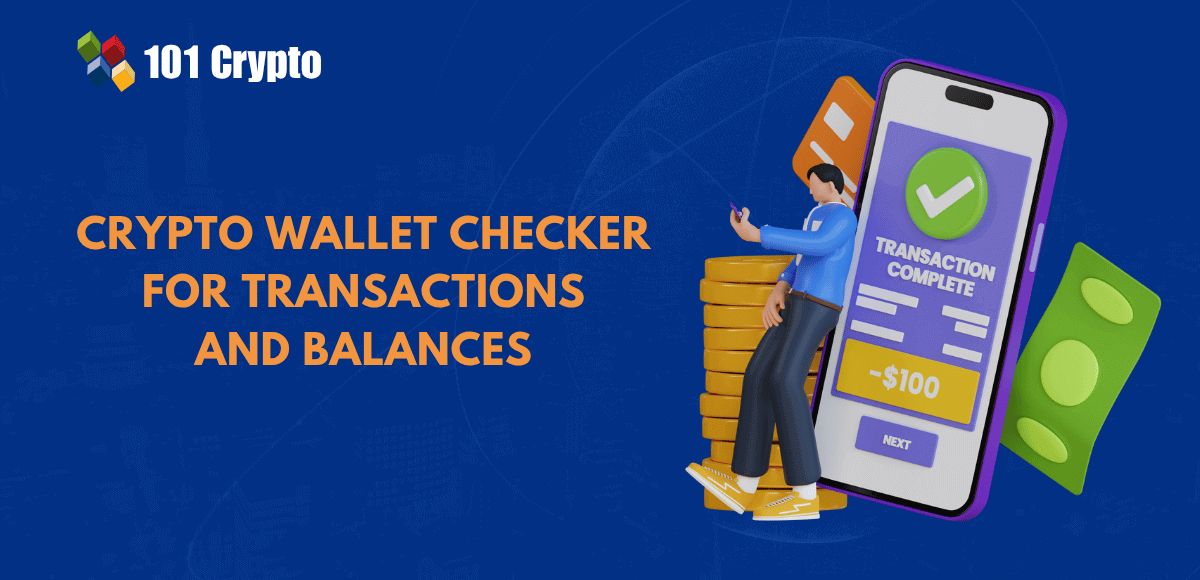The domain of cryptocurrencies is nothing short of a mysterious world where digital assets have the power to transform conventional narratives. Amidst the chaos of the crypto space, users need something to store and manage their assets with the assurance of security and integrity. The crypto digital wallet is a trusted solution that bridges the gap between users and their crypto assets. Many of you might have assumed that crypto wallets are the digital versions of your physical wallets used to store cash and coins.
If you have been wondering about the magic that makes crypto wallets one of the most valuable resources in the crypto landscape, then you have arrived at the right place. Let us unravel the highlights that make crypto wallets special with examples and an overview for their future.
Enroll now in the Bitcoin Fundamentals Free Course to gain deep insights on how the Bitcoin blockchain works.
Understanding the Importance of Crypto Wallets
You can find the best introduction to crypto wallets by understanding their definition and interface. First of all, everyone must know that crypto wallets don’ts actually store cryptocurrencies of users. On the contrary, your crypto assets stay on the public ledger or blockchain, which is distributed across multiple computers worldwide. The answers to ‘What is a crypto wallet’ suggest that crypto wallets are software programs or applications used to store public and private keys. You can use the keys to access and manage your crypto assets on the blockchain.
It is important to remember that public keys and private keys serve as crucial components in the working of crypto wallets. Public keys represent the wallet address which you can share with others to receive cryptocurrency. The public key serves as a unique identifier for your crypto wallet on a blockchain. On the other hand, private keys are similar to the password to your bank account. You can use private keys to prove ownership of crypto assets and use them in different transactions.
The private keys help in signing transactions when you want to send cryptocurrencies, thereby proving your ownership of the assets. The signed transaction would be broadcast to the blockchain and after the verification process, the transfer process will be incomplete. You can notice how crypto wallets serve as an interface for interacting with the blockchain, managing your assets and executing transactions.
Working Mechanism of Crypto Wallets
Even if the basic description of public keys and private keys showcase a glimpse of how crypto wallets work, some people will need a detailed explanation. The working of a crypto wallet explained in brief would focus on the relationship between private and public keys and the decentralization element in blockchain.
The first step in the working of crypto wallets starts when you create a new wallet, which involves generating a pair of private and public keys. Crypto wallets also generate a recovery phrase or seed phrase that helps in recovering your wallet if you lose your private keys. Losing the seed phrase means losing access to your crypto forever.
Let us say that you want to receive crypto assets from someone in your wallet. You have to ask them to use your public wallet address and send funds to the specific address. How will they send crypto? Sending cryptocurrencies requires initiating the transaction through a crypto wallet. The wallet will ask for the private key for digitally signing the transaction and proving that you own the funds. Subsequently, the signed transaction can be broadcast across the network.
The most crucial stage in the working of crypto wallets is the verification phase in which network participants verify the legitimacy of the transaction. The verification process involves checking whether the private key used for signing the transaction matches the corresponding public address. In addition, the verification process also checks whether you have sufficient balance for the transaction. After completing the verification stage, the transaction will become a permanent addition to a block, ultimately becoming an immutable component of the ledger.
Exploring the Popular Variants of Crypto Wallets
The next crucial highlight in discussions about crypto wallets draws attention towards the variants of crypto wallets. You can find two common types of crypto wallet, such as hot wallet and cold wallet, classified on the basis of internet connectivity. The following sections will provide useful insights on hot and cold wallets along with explanation for their utility.
-
Hot Wallets
Hot wallets have earned the name for being connected to the internet always. The biggest reason to choose hot crypto wallets is the convenience for frequent transactions. You can use hot wallets to store small amount of crypto for trading, daily expenses or interactions with dApps. Some of the notable types of hot wallets in the crypto market include web wallets, mobile wallets and desktop wallets.
Web wallets are the hot wallets you can find on popular crypto exchanges. Desktop wallets are applications installed on a computer while mobile wallets are smartphone apps you can install on your phone. The major difference between these wallets is that web wallets or exchange wallets are completely custodial. Unlike mobile or desktop wallets, the web wallets have complete control and custody of your private keys.
The advantages of hot wallets, such as convenience, user-friendliness and seamless integration with different web3 solutions make them the top favorites in crypto. Beginners are likely to trust hot wallets to begin their journey in crypto due to the simple setup process. Furthermore, the intuitive user interfaces of hot wallets make them the ideal choice for frequent or daily crypto transactions. On the other hand, hot wallets present risks such as exposure to security vulnerabilities and custody risks.
-
Cold Wallets
Cold wallets are the exact opposite of hot wallets and don’t require an internet connection. You would have to connect cold wallets to the internet for transactions albeit without the risk of exposing your private keys. The most notable examples of crypto wallets with cold storage include hardware wallets like Trezor and Ledger. It is also interesting to note that you can create a paper wallet for cold storage by writing down your public, private keys and seed phrase on a piece of paper.
Hardware wallets are the most common type of cold wallet you can find in action in the crypto space. The design of hardware wallets resembles that of UDB drives or calculators. Hardware wallets store the private keys offline and sign transactions within the device without the private key leaving the device. Users can connect hardware wallets to their computer only when they have to make transactions.
Cold wallets provide significantly better security than hot wallets as they never expose your private keys online. With a cold wallet, you will have complete control and ownership of private keys. The ideal situation to use cold wallets is when you have large amounts of cryptocurrency and you want to store them for a long time. At the same time, you should also keep an eye on the limitations of cold wallets like the lack of convenience and complexity. Most important of all, hardware wallets can be stolen or physically damaged, which may mean an irreversible loss of assets.
The Custodial vs. Non-Custodial Wallet Debate
The variations of a crypto digital wallet do not focus only on hot and cold wallets. You must also know about another crucial point of difference for crypto wallets with respect to custody of private keys. The difference between custodial and non-custodial wallets is an important factor that you should take into account while choosing crypto wallets. Why? The implications of custodial and non-custodial wallets are different for different users.
With a custodial wallet, you can expect the exchange or the wallet provider to store and manage your private keys. Custodial wallets are more suitable for beginners as they offer simple interfaces and faster transactions. However, you may lose your funds forever in the event of bankruptcy or security breach in a custodial wallet. On top of it, the custodial wallet provider may also decide to freeze your account and all assets in it.
If you don’t want to live in the fear of your crypto wallet shutting down or being hacked, then you can choose non-custodial wallets. Non-custodial wallets entrust you with the responsibility of storing and managing your private keys. As a result, you will have complete control and ownership over your crypto assets. At the same time, non-custodial wallets impose the burden of managing private keys and your seed phrase. Hardware wallets and desktop wallets are the best examples of non-custodial crypto wallets.
Final Thoughts
The importance of crypto wallets exceeds far beyond the identity of a place to store your crypto assets. Crypto wallets are essential tools that help in storing, managing and interacting with your crypto assets on a blockchain. You can find different types of crypto wallet, such as hot wallet and cold wallet with distinct advantages. For instance, hot wallets are the ideal pick for convenience while cold wallets are the leaders in security. Crypto users must also understand the difference between custodial and non-custodial wallets to recognize the significance of custody of private keys. Learn more about crypto wallets and the best security practices to safeguard your cryptocurrencies now.
Disclaimer
The article should not be taken as, and is not intended to provide any investment advice. Claims made in this article do not constitute investment advice and should not be taken as such. 101 Crypto shall not be responsible for any loss sustained by any person who relies on this article. Do your own research!







